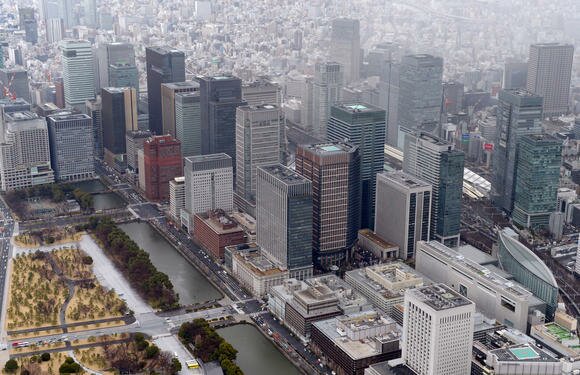TOKYO – For the third straight time Singapore topped the Financial Times’ list for Asia’s best prospects for investment and economic expansion. Tokyo came in second place in the Asia-Pacific Cities of the Future 2015-2016 ranking compiled by fDi Intelligence, an FT unit, jumping from the ninth spot in the previous ranking two years ago.
Taipei came in third, and Seoul placed fourth. Osaka, Japan’s second largest city, came in at ninth place.
Tokyo soared in the ranking thanks to its 10-year plan to turn the capital into a global financial center as well as its National Strategic Special Zone program aimed at boosting Tokyo’s international competitiveness.
The ranking, compiled every two years, scores cities based on six categories, including economic potential, such as gross domestic product and the number of foreign direct investment projects, and connectivity, measured by Internet access speed and the quality of transportation networks.
This is the fifth time fDi Intelligence has produced the ranking, and this year it covered 163 cities in the region.
Tokyo’s rise owes much to improvement in the FDI strategy category, where it was ranked third. Tokyo was not even in the top 10 in this category in previous rankings. Judges were especially impressed with the city’s long-term vision, set at the end of 2014, designed to promote Tokyo as an international business hub.
Singapore retained the top spot thanks to brisk foreign investment, which totaled 7.3% of all inward investment in the region between 2003 and September of this year.
Taipei rose from sixth place in the previous ranking. The Taiwanese capital topped the ranking of midsize Asia-Pacific cities and came in first in two of the six categories — business friendliness and economic potential — among like-sized rivals.
Taipei enjoys a sound economy with a per capita GDP of $44,173. It is also attracting innovation, with 24,280 patents registered between 2010 and 2014, according to fDi. Taipei attracts investors with a well-educated yet low-wage workforce and the ease of establishing businesses. Low export and import costs, property registration costs and relatively cheap construction permits also boosted its attractiveness.
(Nikkei)


